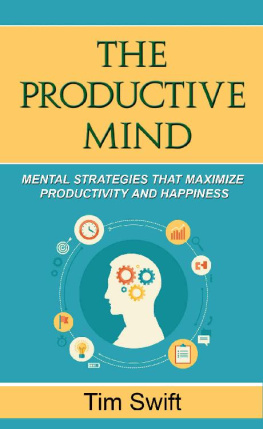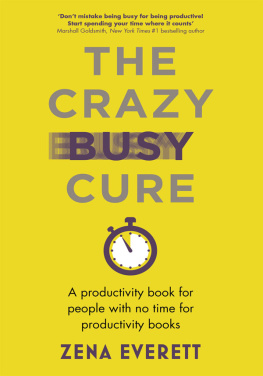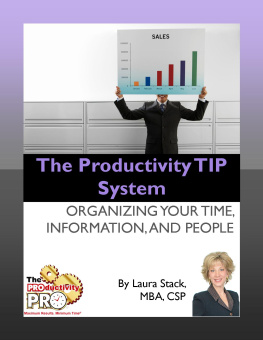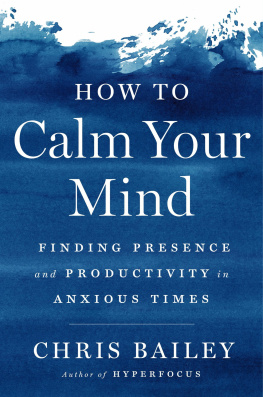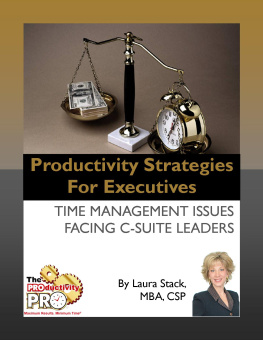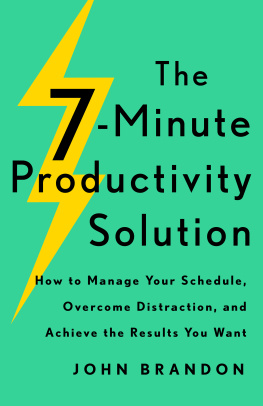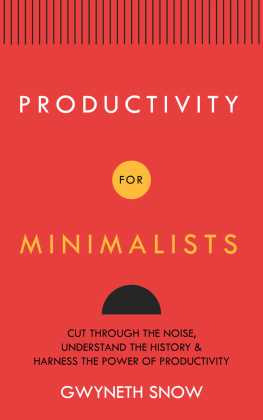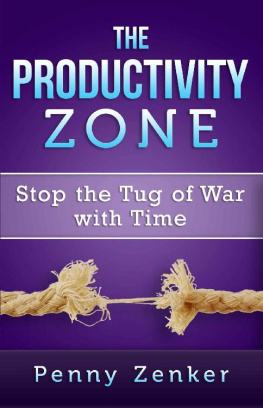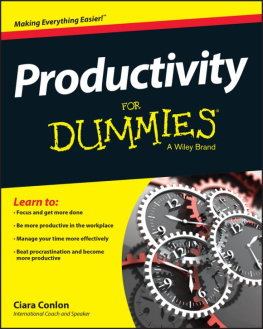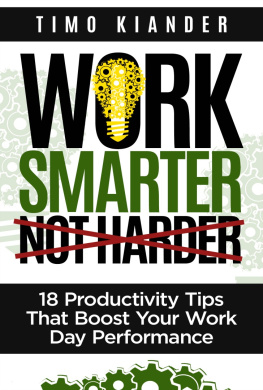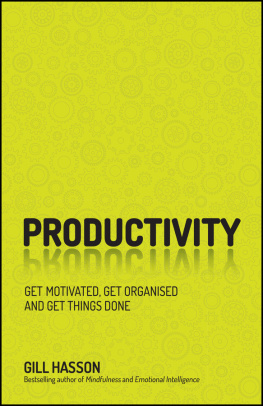Table of Contents
Introduction
I want to thank you and congratulate you for downloading the book, A Productive Mind: Mental Training and Beliefs that Increase Productivity and Happiness.
This book contains proven steps and strategies on how you can achieve a productive mind. The mind is a powerful thing. It can make us believe or doubt. If we are to categorize people based on their belief, you will find two.
On one hand, you have people whose eyes are filled with hope. These are the people who seem like they know what they are doing. If you get to meet one of them, you will feel like these people have dreamt of their futures.
On the other hand, there are people who seem stuck. They seem to carry the weight of the world on their shoulders. All you can see in their eyes is hopelessness. They have no aspiration, ambition, or joy. They are just passing the time. They are alive but not living. Now, who would you rather be?
Belief is an abstract concept, but it is an ingredient necessary to push you to want to make a change in your life, a change for the better. You need motivation to believe that it can be done. Having a motivation to dream or to aspire for something better will allow you to get past the negativity and the self doubt. You only need to entertain the possibility of positive change. All you need to give yourself is a moment to believe so you can get down to creating a vision.
This book will help you train your mind to think with clarity, to think with confidence and hope. We cover the basic ingredients of productivity: the importance of time management, habit formation, focus, and realistic goals. We also emphasize one important matter you should keep in mind. Aiming for perfection is futile. If you value your time, you will use it thoughtfully, focus on realistic goals that truly mean something to you, and strive to develop habits that help you become a more productive individual living a better, happier, and more fulfilling life!
Continue reading if youre ready to have an extraordinary life!
Thanks again for downloading this book, I hope you enjoy it!
Chapter 1 YOUR TIME IS VALUABLE
Most of us are seduced by the idea of urgency. We obsess about the belief that something must be completed at the soonest time possible. Yes, some of these things may be truly important but not all of them are. More often than not, we create more stress by making ourselves believe that everything must be completed as quickly as possible, including those that do not matter much.
We have a tendency to magnify small details and make every little thing seem extremely important. We have this obsession about busyness. If we are spending less time working, it means we are not successful or important enough. Our idea of importance, power, and success seems to be tied up to the number of hours we spend at work. So if we barely see our family and friends, we must be really getting to the big league. It is a demand we put to ourselves. It is a pattern that society creates. Following this pattern will wear us down eventually.
We have to stop and take a moment to ask ourselves, are these little things as important as we make them to be? Break the habit of being overly dramatic. Change our belief system and re-evaluate your sense of urgency.
There are four dimensions that we have to be aware about. These four dimensions can help us map out our priorities. They can help us spend our time much more wisely. Although this way of prioritizing tasks is not unique or copyrighted, I should note that this method of visualization was popularized by Tony Robbins.
The Dimension of Distraction
This dimension includes the things or tasks that are neither urgent nor important. Often, we focus on the items in this dimension when we are too tired to do tasks that involve thinking. A few examples of items in this dimension are staying in bed when we are neither sleepy nor sick, staring at the television when we are not really interested in what is being shown, or even eating when we are not even really hungry.
People who spend a lot of time in this dimension are stuck in what is referred to as the No Man's Land. It is a state where people do not exert effort and are not really happy. And while they are unhappy, their unhappiness is not strong enough to motivate them to make a change or rethink their lives.
The Dimension of Delusion
Here is where we find the things or tasks that stress us out the most. It houses the items that seem urgent but are not really important. It is called the dimension of delusion for a reason. That's because people who spend most of their time in this area are delusional into thinking what they are doing makes a difference to their personal goals.
They are more likely obsessed about crafting a plan and organizing their to-do lists but get easily distracted when others make demands of them. They approach these demands with a sense of urgency. What they do not realize is that they are spending most of their time and energy on pursuing outcomes that may not really relate to their own goals. This stops them from completing their personal plan. It stops them from focusing on the most important things in their lives.
The Dimension of Demand
While there are tasks that may seem urgent but not important, there are also those that are urgent and are important. These are the things we cannot foresee. For instance, we may need to attend to a family member who got injured because of an accident.
Matters like this need our immediate attention but take time away from executing our personal plan. The best way to deal with them is to become more proactive. After all, these are important things too and they require attention. Anticipating them may not completely lessen their urgency, but it will certainly help us reduce the amount of time we spend on these matters.
The Dimension of Fulfillment
Right at the center and what we should aim for is the dimension of fulfillment. They are not exactly urgent, but they are very important to us especially in the long term. It is also referred to as The Zone. It houses all tasks that can help us fulfill our life purpose. And for that, we must always make time for them.
We should make it a point not to get too busy or too tired to attend to these matters. This is why we should waste less time on unimportant things. A few examples of items on this dimension include spending quality time with our family, working on self-improvement, etc.
Tasks without purpose are just meaningless activities. Urgency is just an illusion of demand we create for ourselves in which case we need to discipline ourselves in this matter. Focusing our time on important things can bring us fulfillment.
So, I encourage you to ask yourself these questions.
If I were given more time, what would I use it for?
What is it that I like to do if I had extra hours to spend in a day or in a week?
The answer to these questions can help re-frame your thinking and put things in proper perspective. It will help you identify things that are most important to you.
Okay. What do I do with this information?
I can give you tips on how to do more in less time or how to arrange your schedule. But such tips would not matter if you dont know how to prioritize. You see, time management is not just about how or where you use your time. More importantly, it is about why you spend your time doing the things that you do. To be truly useful, you need to evaluate how you are currently using your time.
Are you wasting most of it in Distraction, Delusion, or Demand? Or are you actually focusing on The Zone?


